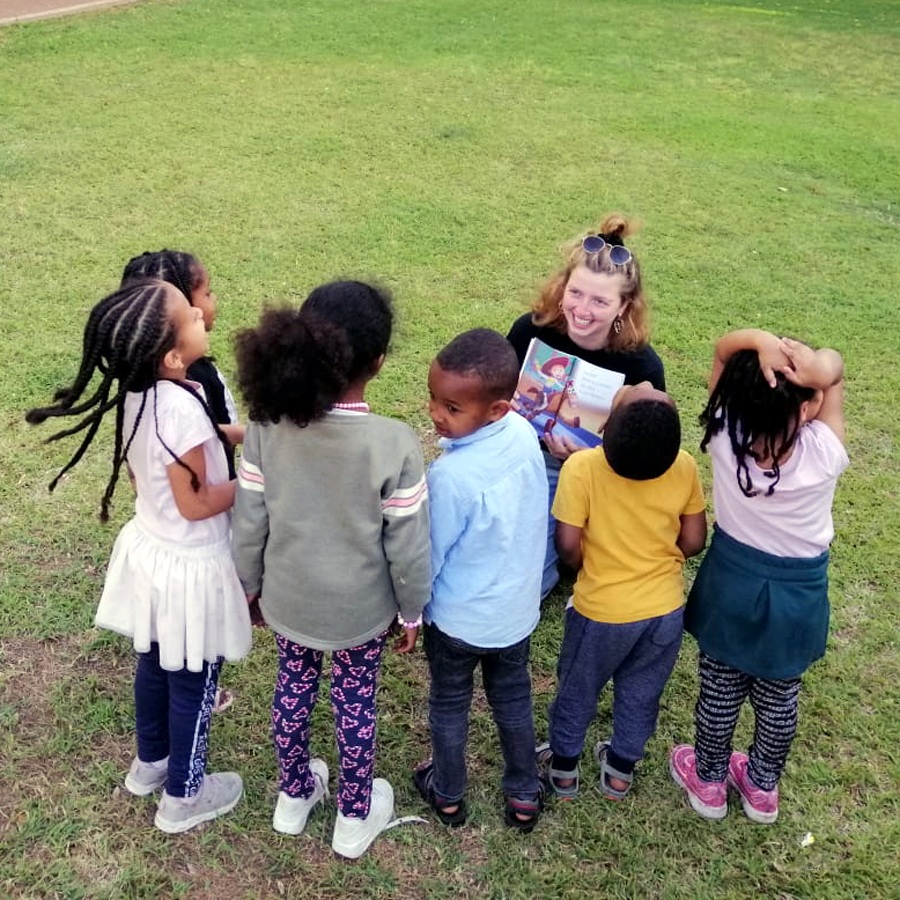
23 Sep Creating Change in Israel
Juliet, 22, from Ardsley, New York, graduated from the University of Michigan in 2020, having majored in International Studies and Sociology with a minor in Middle Eastern Studies. She intended to start work in the US after college but COVID changed her plans, spurring her to look into available opportunities to instead make difference in Israel. During her search, she came across the Yahel Social Change Fellowship, which was still running despite the pandemic.
The Yahel Social Change Fellowship, an approved Masa Israel Journey program, allows fellows to come to Israel for nine months to volunteer with nonprofit organizations, creating change at the local level while learning about and immersing themselves in Israeli society.
“I chose to come on Yahel Social Change Fellowship to better understand the complexities of Israeli society. I did not want to come and just have fun living in Tel Aviv or something like that, but do something that would genuinely make a difference in marginalized communities,” Juliet explained.
Juliet was based in the Ramat Eliyahu community of Rishon Letzion. She worked with little kids, in addition to interning with a nonprofit called Ma’ayan Bamidbar (Wellspring in the Desert) which brings together Jews and Arabs on college campuses to teach them Hebrew and Arabic.
“Ramat Eliyahu is underfunded and struggles a lot socioeconomically, so any help they can get is greatly appreciated. We form deep connections with the community and plant seeds for a better future,” said Juliet. “And then working with Ma’ayan Bamidbar, I helped write grants and do social media. The organization really fosters relationships and helps destroys preconceived biases.”
When Juliet first arrived in Israel, she had to quarantine for two weeks with her fellow participants. That gave them plenty of time to bond.
“It was so great to meet the other fellows and have that time together. We were a very international group, with participants from Argentina, India, and Greece, to name a few. I was excited to hear their perspectives on Israel and the world,” Juliet recalled.
Beyond the quarantine period, COVID also impacted the fellows’ ability to interact with the community, especially when lockdowns were happening.
“It was hard being on Zoom and then also trying to work with children while wearing masks—especially with babies, face masks are not great,” Juliet said. “Looking back though, I am grateful for the time where everything was a bit slower, for it helped me appreciate my community, and then appreciate everything I was able to do in-person.”
Despite the challenges, Juliet loved her time in Israel with Yahel.
“Yahel is hard work, both mentally and emotionally. It is not easy to see the realities of Israel, but it is that much more important that we do our part to change it,” shared Juliet. “Supporting Israel is not blindly accepting that she is perfect, but actively working to make her better.”
